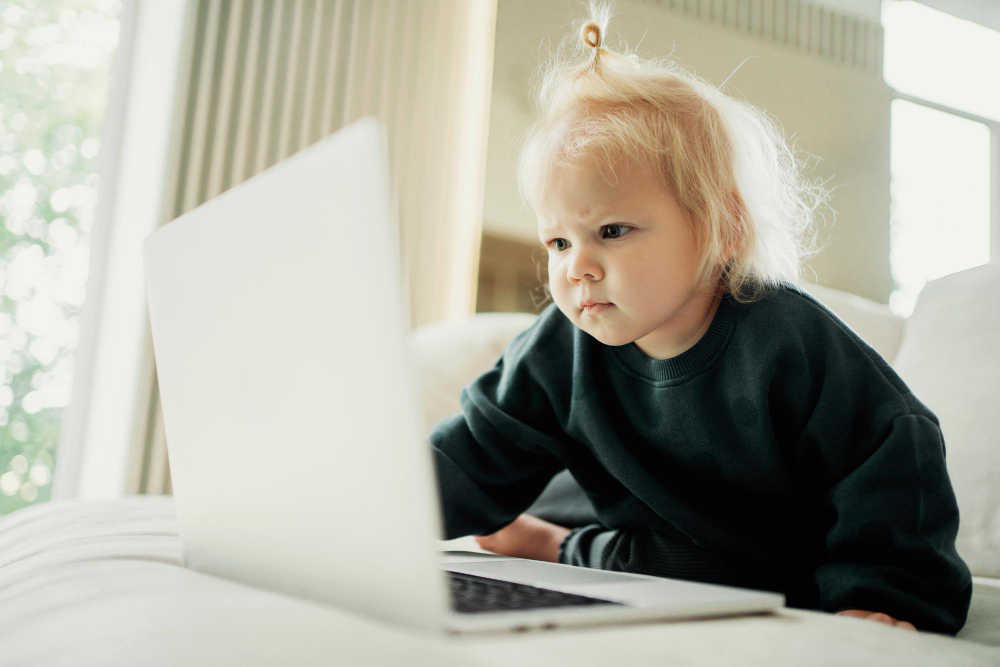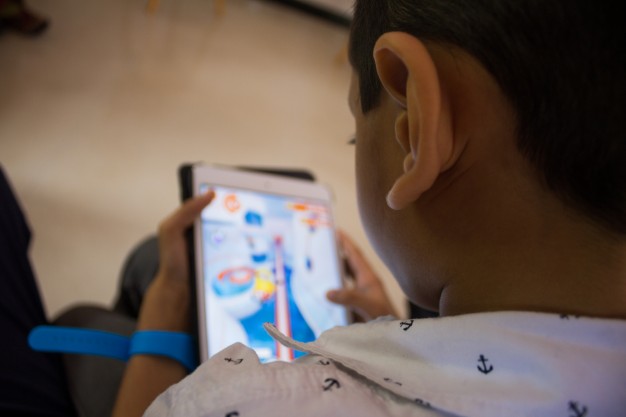Babies need humans, not screens
Find out why, and how, too much screen time can harm your child.

Did you know that the negative effects of too much screen time for babies and toddlers range from shorter attention span to lower empathy?
Carlota Nelson, director of the documentary Brain Matters, explores why too much screen time can harm babies and the importance of ensuring children enjoy off-screen experiences.
Babies, toddlers and screen time
In today’s tech and media-driven world, many parents use screens to keep young children entertained or distracted while they juggle other needs. It works. Screens captivate children’s attention in a way almost nothing else does, allowing parents a bit of a breather. But what is the impact of screens on young brains and how much screen time should they be exposed to?
Brain scientists who study the impact of screens on baby brains don’t have all the answers yet, but what they do know will help parents understand how critical it is to provide off-screen experiences. Only then will children learn, improve their social and cognitive skills and be healthier and happier in the future.
Babies learn the most from human interaction
Patricia Kuhl is one of the world’s leading brain scientists and runs experiments with more than 4,000 babies each year. “What we’ve discovered is that little babies, under a year old, do not learn from a machine,” she says, pointing to several brain scans on a computer. “Even if you show them captivating videos, the difference in learning is extraordinary. You get genius learning from a live human being, and you get zero learning from a machine.”
Perhaps that is why the World Health Organization recommends no screen time for babies under 2 and no more than one hour of screen time a day for those aged 2 to 4.
Screens hijack attention spans
For children to be successful, they need to learn how to concentrate and focus. That ability starts to develop during their earliest years when their brains are more sensitive to the environments around them. For a brain to develop and grow, it needs essential stimuli from the outside world. More importantly, they need time to process those stimuli. While reading storybooks out loud gives children time to process words, images and voices, the constant absorption of on-screen images and messages affects their attention span and focus.
Screens curtail ability to control impulses
Young children need their dose of boredom. It teaches them how to cope with frustration and control their impulses. If young children are constantly being stimulated by screens, they forget how to rely on themselves or others for entertainment. This leads to frustration and hinders imagination and motivation.
Screens reduce empathy
Research has shown that screen time inhibits young children’s ability to read faces and learn social skills, two key factors needed to develop empathy. Face-to-face interactions are the only way young children learn to understand non-verbal cues and interpret them.
“Until babies develop language,” says Charles Nelson, a Harvard neuroscientist who studies the impact of neglect on children’s brains, “all communication is non-verbal, so they depend heavily on looking at a face and deriving meaning from that face. Is this person happy with me, or are they upset at me?” That two-way interaction between children and adult caregivers is critically important for brain development.
Exposure to screens reduces babies’ ability to read human emotion and control their frustration. It also detracts from activities that help boost their brain power, like play and interacting with other children. But if you have to rely on screens at certain moments, just make sure to control the quality of what they see and engage with them while they’re watching. The benefits of limiting and even eliminating screen time in these early moments will last a lifetime.
More… here





